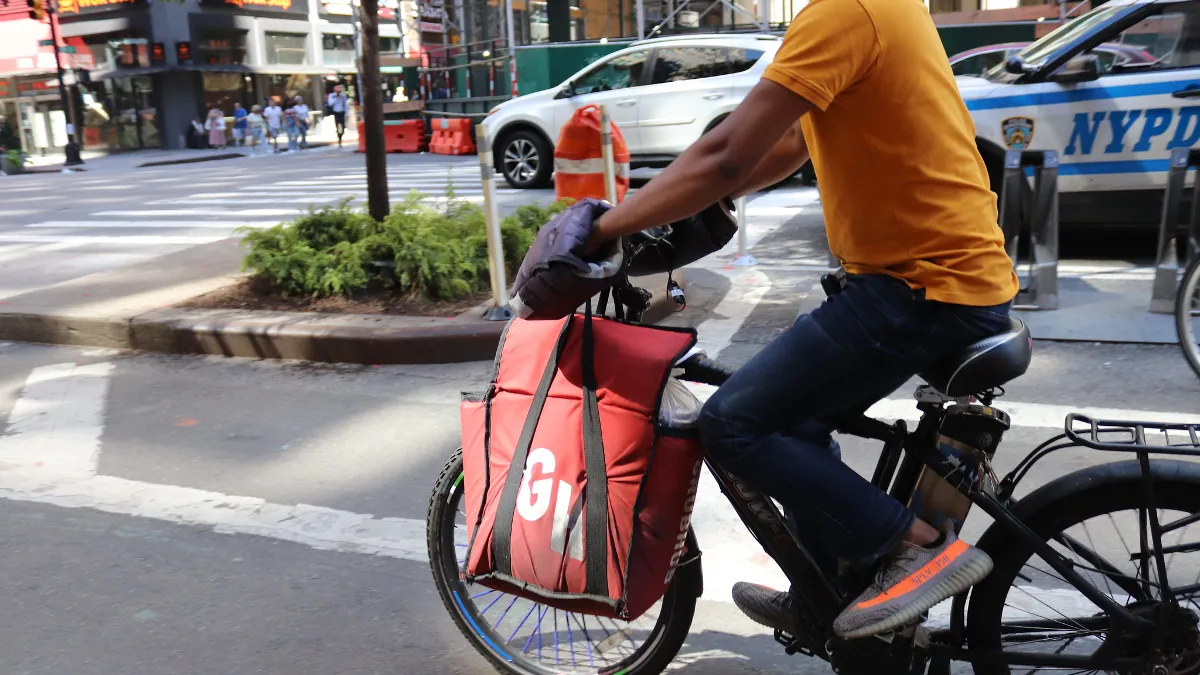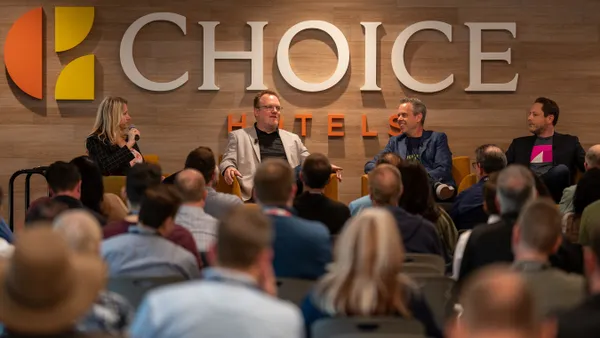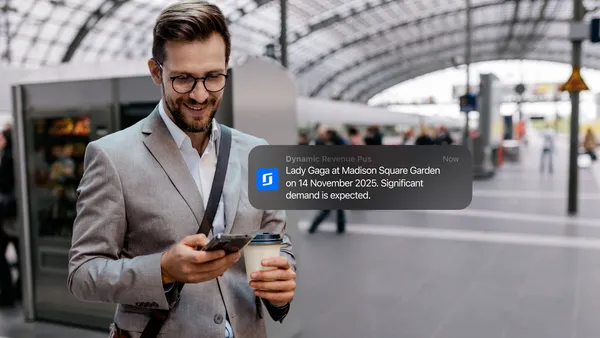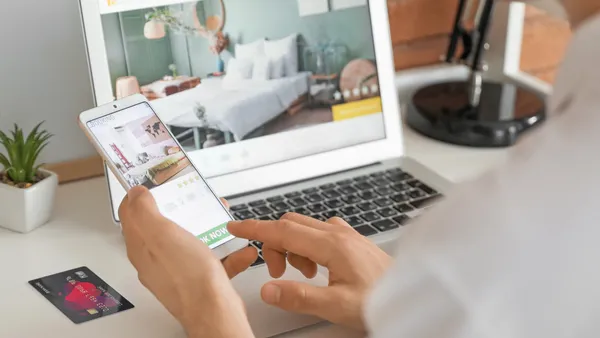Americans got more comfortable ordering online during the pandemic — and that cohort includes hotel guests.
According to a McKinsey & Co. report, the worth of the global food delivery market more than tripled between 2017 and 2021. In the U.S., in particular, the food delivery market more than doubled during the pandemic — quite the acceleration after historical annual growth of 8%.
Meanwhile, the rise in food delivery coincided with a decline in the popularity of hotel food and beverage offerings. In 2020, hotel food and beverage department revenues declined by 72.5%, according to CBRE. Even after the worst of the pandemic passed, F&B revenues remained down, with CBRE estimating that 2022 annual F&B revenue would be 88.3% of 2019 levels, exacerbated by staffing difficulties and lowered guest demand.
“Americans became extremely comfortable during the pandemic about getting food delivered to them, and this has transferred its way into the hotel industry,” said Chip Rogers, American Hotel & Lodging Association president and CEO, speaking to Hotel Dive in April. At the time, Rogers noted that the number of hotels offering room service has shrunk considerably.
In short: Food delivery apps are filling in the gaps left by hotels’ shrinking food-and-beverage offerings. Rather than bemoan the decline in room service orders, hoteliers are offering ways to make guests’ ordering habits easy via partnerships with popular services like Grubhub and Uber Eats.
IHG Hotels & Resorts led the pack in 2017 with its partnership with Grubhub. Wyndham Rewards followed in 2019 by partnering with DoorDash. And in 2021, Hyatt joined forces with GoPuff to offer free deliveries of snacks and other convenience items.
What does that mean for the hotel kitchen? These Hotel Dive stories explore recent partnerships between hotel brands and food delivery apps.










